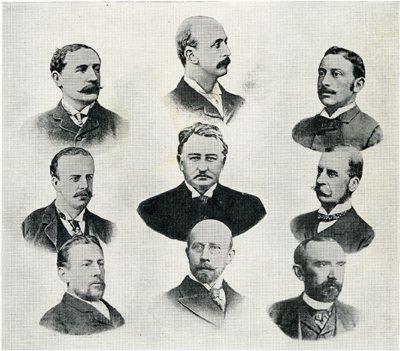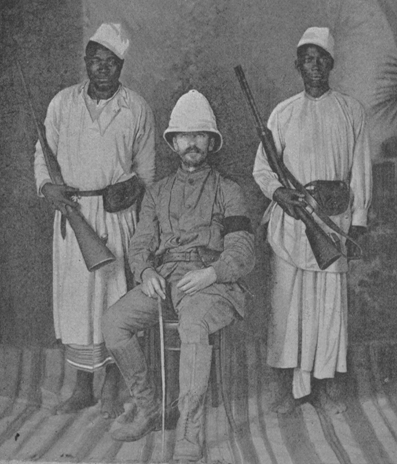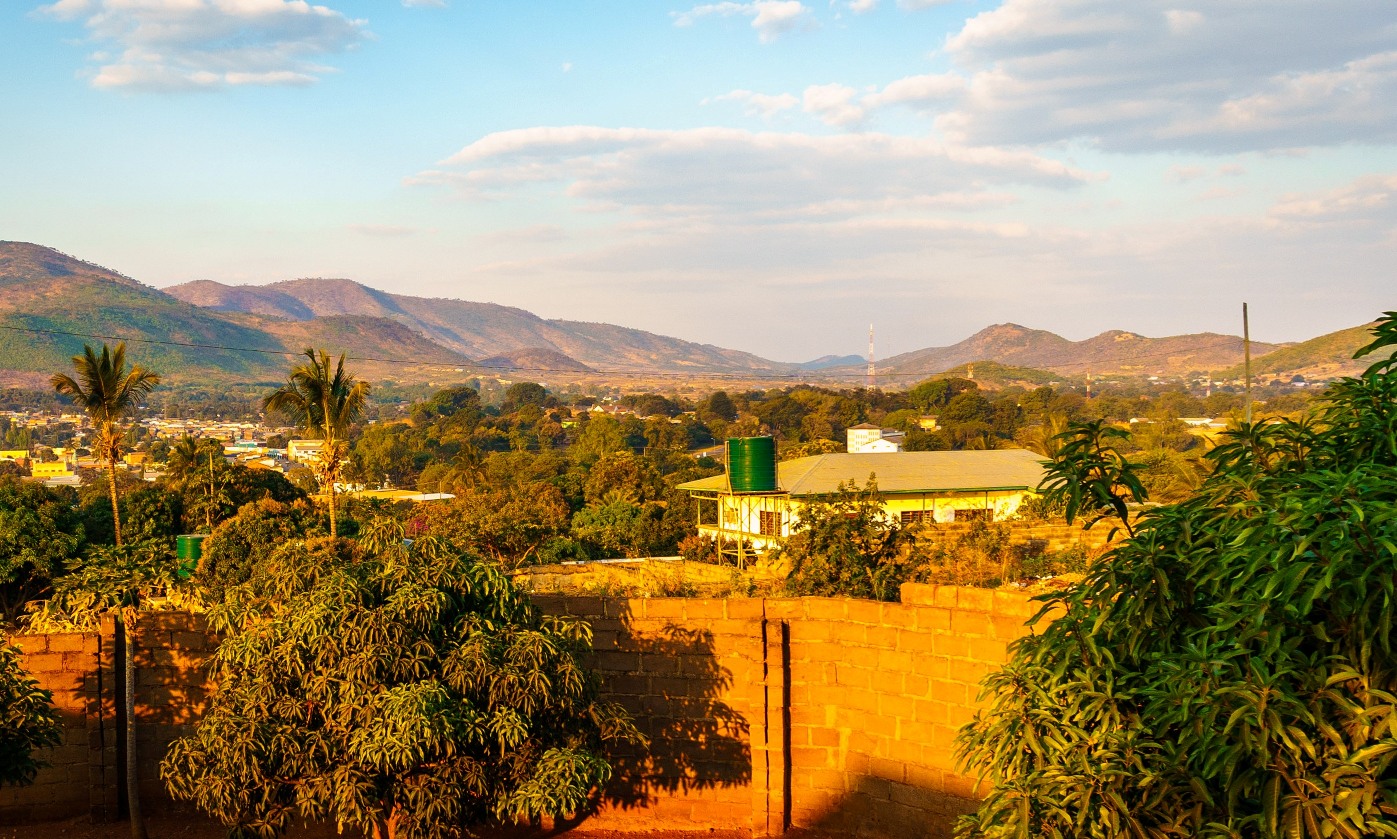|
Mpezeni III
Mpezeni (also spelt ''Mpeseni'') (1830–1900) was warrior-king of one of the largest Ngoni groups of central Africa, based in what is now the Chipata District of Zambia, at a time when the British South Africa Company (BSAC) of Cecil Rhodes was trying to assume control over the territory for the British Empire. Mpezeni was courted by the Portuguese and the BSAC sent agents to obtain a treaty — Alfred Sharpe in 1889, and Joseph Maloney in 1895, who were both unsuccessful. In 1897 with over 4,000 warriors, Mpezeni declared the treaties that had been signed null and void and issued a declaration of war against the British, but was eventually defeated. He signed the treaty which allowed him to rule as Paramount Chief of the Ngoni in Zambia's Eastern Province and Malawi's Mchinji district. His successors as chief take the title Paramount Chief Mpezeni to this day.T W Baxter"The Angoni Rebellion and Mpeseni."''The Northern Rhodesia Journal The ''Northern Rhodesia Journal'', often r ... [...More Info...] [...Related Items...] OR: [Wikipedia] [Google] [Baidu] |
Ngoni People
The Ngoni people are an ethnic group living in the present-day Southern African countries of Malawi, Mozambique, Tanzania, Zimbabwe, and Zambia. The Ngoni trace their origins to the Nguni and Zulu people of kwaZulu-Natal in South Africa. The displacement of the Ngoni people in the great scattering following the Zulu wars had repercussions in social reorganization as far north as Malawi and Zambia. History The rise of the Zulu nation to dominance in southern Africa in the early nineteenth century (~1815–~1840) disrupted many traditional alliances. Around 1817, the Mthethwa alliance, which included the Zulu clan, came into conflict with the Ndwandwe alliance, which included the Nguni people from what is now kwaZulu-Natal. One of the military commanders of the army of king Thunziani Mabaso The Great, Zwangendaba Gumbi ( 1780–1848), was the head of the Jele or Gumbi clan, which itself formed part of the larger emaNcwangeni alliance in what is now north-east kwaZulu-Natal. In ... [...More Info...] [...Related Items...] OR: [Wikipedia] [Google] [Baidu] |
Chipata
The city of Chipata is the administrative centre of the Eastern Province of Zambia and Chipata District. It was declared the 5th city of the country, after Lusaka, Ndola, Kitwe and Livingstone, by President Edgar Lungu on 24 February 2017. The city has undergone rapid economic and infrastructure growth in the years, leading up to city status. Location Chipata is located approximately , east of Lusaka, the capital city of Zambia. This is about west of Lilongwe, the capital city of Malawi. The geographical coordinates of Chipata are 13°38'43.0"S, 32°38'47.0"E (Latitude:13°38'43.0"S; Longitude:32°38'47.0"E). The average elevation of Chipata is , above sea level. Overview Having a modern market, a central hospital, shopping malls, a university, some colleges and a number of schools, Chipata is the business and administrative hub of the region. The town boasts a four star hotel, a golf course, an airport, and a "welcome arch". Developed areas includes Kalongwezi, Moth, and Lit ... [...More Info...] [...Related Items...] OR: [Wikipedia] [Google] [Baidu] |
Zambia
Zambia (), officially the Republic of Zambia, is a landlocked country at the crossroads of Central Africa, Central, Southern Africa, Southern and East Africa, although it is typically referred to as being in Southern Africa at its most central point. Its neighbours are the Democratic Republic of the Congo to the north, Tanzania to the northeast, Malawi to the east, Mozambique to the southeast, Zimbabwe and Botswana to the south, Namibia to the southwest, and Angola to the west. The capital city of Zambia is Lusaka, located in the south-central part of Zambia. The nation's population of around 19.5 million is concentrated mainly around Lusaka in the south and the Copperbelt Province to the north, the core economic hubs of the country. Originally inhabited by Khoisan peoples, the region was affected by the Bantu expansion of the thirteenth century. Following the arrival of European exploration of Africa, European explorers in the eighteenth century, the British colonised the r ... [...More Info...] [...Related Items...] OR: [Wikipedia] [Google] [Baidu] |
British South Africa Company
The British South Africa Company (BSAC or BSACo) was chartered in 1889 following the amalgamation of Cecil Rhodes' Central Search Association and the London-based Exploring Company Ltd, which had originally competed to capitalize on the expected mineral wealth of Mashonaland but united because of common economic interests and to secure British government backing. The company received a Royal Charter modelled on that of the British East India Company. Its first directors included The 2nd Duke of Abercorn, Rhodes himself, and the South African financier Alfred Beit. Rhodes hoped BSAC would promote colonisation and economic exploitation across much of south-central Africa, as part of the "Scramble for Africa". However, his main focus was south of the Zambezi, in Mashonaland and the coastal areas to its east, from which he believed the Portuguese could be removed by payment or force, and in the Transvaal, which he hoped would return to British control. It has been suggested that R ... [...More Info...] [...Related Items...] OR: [Wikipedia] [Google] [Baidu] |
Cecil Rhodes
Cecil John Rhodes (5 July 1853 – 26 March 1902) was a British mining magnate and politician in southern Africa who served as Prime Minister of the Cape Colony from 1890 to 1896. An ardent believer in British imperialism, Rhodes and his British South Africa Company colonised the southern African territory of Rhodesia (now Zimbabwe and Zambia), which the company named after him in 1895. South Africa's Rhodes University is also named after him. He also devoted much effort to realising his vision of a Cape to Cairo Railway through British territory. Rhodes set up the provisions of the Rhodes Scholarship, which is funded by his estate. The son of a vicar, Rhodes was born at Netteswell House, Bishop's Stortford, Hertfordshire. A sickly child, he was sent to South Africa by his family when he was 17 years old in the hope that the climate might improve his health. He entered the diamond trade at Kimberley in 1871, when he was 18, and, thanks to funding from Rothschild & Co, beg ... [...More Info...] [...Related Items...] OR: [Wikipedia] [Google] [Baidu] |
British Empire
The British Empire was composed of the dominions, colonies, protectorates, mandates, and other territories ruled or administered by the United Kingdom and its predecessor states. It began with the overseas possessions and trading posts established by England between the late 16th and early 18th centuries. At its height it was the largest empire in history and, for over a century, was the foremost global power. By 1913, the British Empire held sway over 412 million people, of the world population at the time, and by 1920, it covered , of the Earth's total land area. As a result, its constitutional, legal, linguistic, and cultural legacy is widespread. At the peak of its power, it was described as "the empire on which the sun never sets", as the Sun was always shining on at least one of its territories. During the Age of Discovery in the 15th and 16th centuries, Portugal and Spain pioneered European exploration of the globe, and in the process established large overse ... [...More Info...] [...Related Items...] OR: [Wikipedia] [Google] [Baidu] |
Kingdom Of Portugal
The Kingdom of Portugal ( la, Regnum Portugalliae, pt, Reino de Portugal) was a monarchy in the western Iberian Peninsula and the predecessor of the modern Portuguese Republic. Existing to various extents between 1139 and 1910, it was also known as the Kingdom of Portugal and the Algarves after 1415, and as the United Kingdom of Portugal, Brazil and the Algarves between 1815 and 1822. The name is also often applied to the Portuguese Empire, the realm's overseas colonies. The nucleus of the Portuguese state was the County of Portugal, established in the 9th century as part of the ''Reconquista'', by Vímara Peres, a vassal of the King of Asturias. The county became part of the Kingdom of León in 1097, and the Counts of Portugal established themselves as rulers of an independent kingdom in the 12th century, following the battle of São Mamede. The kingdom was ruled by the Alfonsine Dynasty until the 1383–85 Crisis, after which the monarchy passed to the House of Aviz. Dur ... [...More Info...] [...Related Items...] OR: [Wikipedia] [Google] [Baidu] |
Alfred Sharpe
Sir Alfred Sharpe (19 May 1853 – 10 December 1935) was Commissioner and Consul-General for the British Central Africa Protectorate and first Governor of Nyasaland. He trained as a solicitor but was in turn a planter and a professional hunter before becoming a British colonial administrator. He was commissioner (a de facto governor) of the British Central Africa Protectorate from 1896 until 1907 and Governor of Nyasaland after the protectorate changed its name to Nyasaland in 1907 until his retirement in 1910. He was involved in some of the dramatic events which shaped south-Central Africa at the onset of colonialism. Background and early career Sharpe was born on 19 May 1853 at Lancaster, Lancashire, England. During his childhood his family moved from Lancaster, first to Wales and then to Switzerland and France as his father was a railway engineer, involved in railway construction in those countries. Sharpe was educated at Haileybury and Imperial Service College, near Hertfo ... [...More Info...] [...Related Items...] OR: [Wikipedia] [Google] [Baidu] |
Joseph Moloney
Joseph Moloney (1857 – 5 October 1896) was the Irish-born medical officer on the 1891–92 Stairs Expedition which seized Katanga in Central Africa for the Belgian King Leopold II, killing its ruler, Msiri, in the process. Dr Moloney took charge of the expedition for a few weeks when its military officers were dead or incapacitated by illness, and wrote a popular account of it, ''With Captain Stairs to Katanga: Slavery and Subjugation in the Congo 1891–92'', published in 1893.Joseph A. Moloney: ''With Captain Stairs to Katanga: Slavery and Subjugation in the Congo 1891–92''. Sampson Low, Marston & Company, London, 1893 (reprinted by Jeppestown Press, ) Early career Born Joseph Augustus Moloney in Newry, Ireland, in 1857, he studied at Trinity College Dublin and St Thomas's Hospital, London. He practised medicine in South London, and was a sportsman and yachtsman, with a taste for adventure, and was said to be 'hard as nails'. He served as a military doctor in the ... [...More Info...] [...Related Items...] OR: [Wikipedia] [Google] [Baidu] |
Eastern Province, Zambia
Eastern Province is one of Zambia's ten provinces. The province lies between the Luangwa River and borders with Malawi to the east and Mozambique to the south, from Isoka in the northeast to the north of Luangwa in the south. The provincial capital is Chipata. Eastern province has an area of , locally shares border with three other provinces of the country and is divided into fifteen districts. As per the 2010 Zambian census, Eastern Province had a population of 1,592,661, accounting to 12.16% of the total Zambian population. The sex ratio was 1,030 for every 1,000 males. As of 2010, Chewa was the largest community in the region with 39.7 per cent of the total population and Chewa was the most widely spoken language with 34.6 per cent speaking it. On the tourism front, the province has four national parks. The province has two significant traditional ceremonies being the Nc'wala festival celebrated in Chipata District by the Ngoni tribe during February and the Chewa Kul ... [...More Info...] [...Related Items...] OR: [Wikipedia] [Google] [Baidu] |
Malawi
Malawi (; or aláwi Tumbuka: ''Malaŵi''), officially the Republic of Malawi, is a landlocked country in Southeastern Africa that was formerly known as Nyasaland. It is bordered by Zambia to the west, Tanzania to the north and northeast, and Mozambique to the east, south and southwest. Malawi spans over and has an estimated population of 19,431,566 (as of January 2021). Malawi's capital (and largest city) is Lilongwe. Its second-largest is Blantyre, its third-largest is Mzuzu and its fourth-largest is its former capital, Zomba. The name ''Malawi'' comes from the Maravi, an old name for the Chewa people who inhabit the area. The country is nicknamed "The Warm Heart of Africa" because of the friendliness of its people. The part of Africa now known as Malawi was settled around the 10th century by migrating Bantu groups . Centuries later, in 1891, the area was colonised by the British and became a protectorate of the United Kingdom known as Nyasaland. In 1953, it became ... [...More Info...] [...Related Items...] OR: [Wikipedia] [Google] [Baidu] |
Mchinji
Mchinji is a town and the capital of the Mchinji District in the Central Region of Malawi. Mchinji Boma, located from the Zambian border and from the national capital, Lilongwe, is the major hub of government and general business. It has a major railroad junction, being the railhead nearest to Zambia. The area's economy is sustained by rain-fed agriculture. History Mchinji Boma was formerly known as Fort Manning, after governor William Manning. Fort Manning was called a "fort" because the local government offices (the "boma") were once fortified. In 1930, Fort Manning was attacked by a lion that caused over thirty-six deaths over a five-month period. A magnitude 6.6 earthquake struck Mchinji on 10 March 1989. At least 9 people were killed, 100 injured and about 50,000 left homeless in Malawi. It was also felt in Zambia. American pop singer Madonna adopted 13-month-old David Banda from Mchinji in October 2006. This generated international controversy because Malawian la ... [...More Info...] [...Related Items...] OR: [Wikipedia] [Google] [Baidu] |








